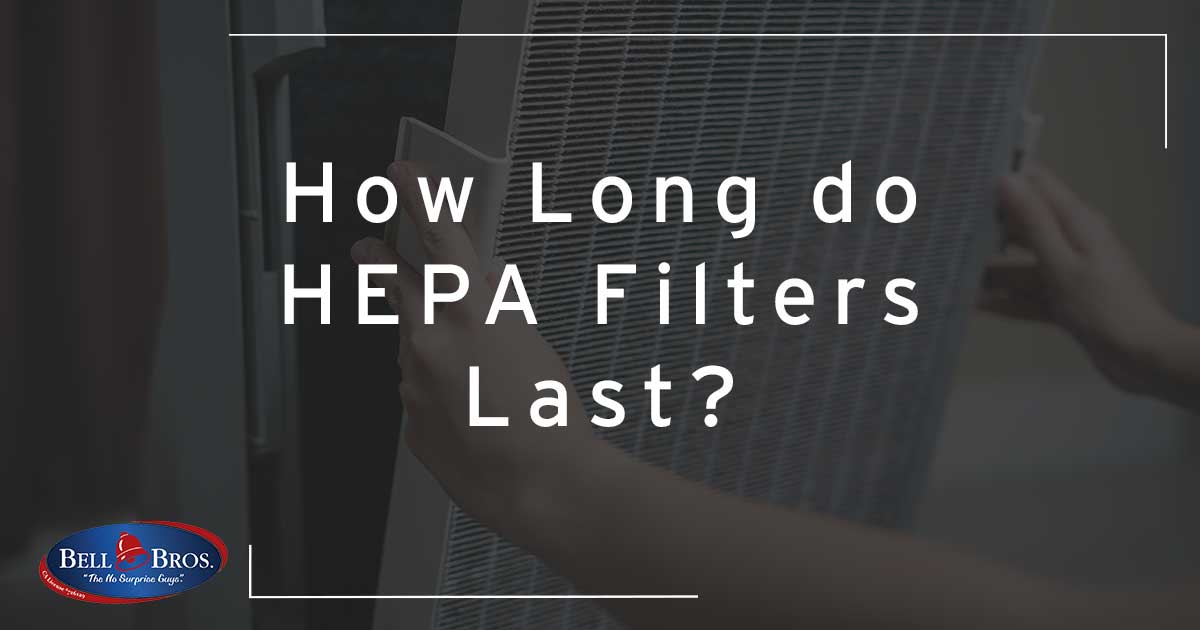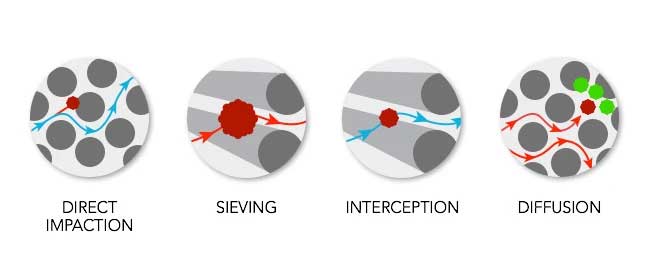How Long do HEPA Filters Last?
 There are major differences between different types of air filters. The differences range in price, material, effectiveness, and length of use. No two filters are made equally, so it’s hard to apply the same care and keeping rules to all air filters. Since the start of the pandemic, we’ve received more questions than ever about HEPA filters. Because of this, we’re addressing how long do HEPA filters last.
There are major differences between different types of air filters. The differences range in price, material, effectiveness, and length of use. No two filters are made equally, so it’s hard to apply the same care and keeping rules to all air filters. Since the start of the pandemic, we’ve received more questions than ever about HEPA filters. Because of this, we’re addressing how long do HEPA filters last.
What are HEPA Filters?
To put it simply, HEPA filters are medical grade air filters. They’re so strong they don’t even rate on the MERV scale. HEPA stands for High Efficiency Particulate Air Filter and is able to trap 99.97% of airborne particles. Though these filters have been in production since WWII, but were not available for commercial use until the 1950s.
HEPA filters were originally created as part of the Manhattan Project. Scientists needed a filter strong enough to trap radioactive particles from their indoor air. After the war and all the files were declassified, scientists found that HEPA filters are also great at trapping dust, dander, and pollen, as well as viral and bacterial particles.
What Are HEPA Filters Made From?
HEPA filters are made from long strands of fiberglass that are tightly wound around each other to form a large, complex maze. The fiberglass strands are so tight even the smallest particles have a lot of trouble finding their way through the woven strands. Here are 4 ways a HEPA filter can trap particles:
- Direct Catching – Large molecules, such as dust, pet dander, and pollen, are the first things to get caught in a HEPA filter. They’re so large they can’t make it past the first row of fiberglass strands.
- Straining, Like Pasta – Smaller particles are pushed forward by the momentum of the blower motor, but they are then quickly caught in a gap between fibers.
- Grabbing on the Sides – Though some particles are small enough to travel through the fiberglass, they can get caught on the sides of fiberglass strands.
- Diffusion – The smallest of fibers move more erratically than large ones and get stuck in the fine weave of a HEPA filter.
How Long do HEPA Filters Last?
At Bell Brothers, we have a rule of thumb to change a filter twice per year. Once in the spring and once in the fall. However, that rule can be flexed a bit. As we mentioned earlier, not all air filters are created equally. Some are only an inch thick and require more replacements. Some are so big they can last a whole year. We recommend the twice per year rule to ensure the health and safety of everyone in your home.
Signs You Need to Change Your Air Filter
Though we recommend changing your air filter twice per year, there are some other factors that could make you change it more often. Some things include your proximity to wildfires, the amount of pollen and allergens in your area, or if you have a lot of pets. Hair from incredibly furry pets can clog an air filter in record time.
Here are some signs it’s time to change your air filter:
- Dirt and dust are accumulating around your air vents.
- Your electricity bill has gone up for no reason.
- Allergies worsen out of nowhere.
- The filter itself looks dirty or damaged
Have Questions About Air Quality? The Experts at Bell Brothers Can Help
Want to learn more about air filters and which one is best for your home? If the answer is yes, it’s time to make an appointment to meet your HVAC expert. Bell Brothers has been in business for almost 30 years and it’s not secret why. To get your own all star service, call the number at the top of the screen or click here to request an appointment online. We proudly serve Sacramento, the Central Valley, and the East Bay.


